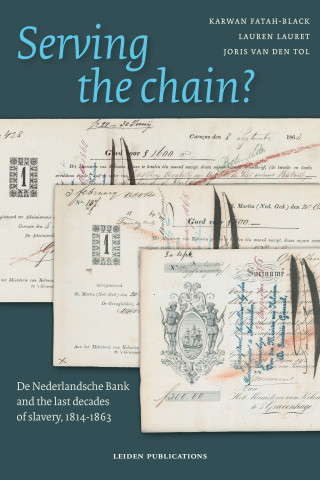Contents;
Preface; Colonial Slavery and its Afterlives:
Introduction – Rose Mary Allen, Esther Captain, Matthias van Rossum, Urwin Vyent;
Section 1 - Current Issues;
1. Dutch Academia and Government on Slavery and Its Afterlives – Alex van Stipriaan;
2. A Crime Against Humanity: Local Dutch Politicians and Mayors – Nancy Jouwe; Research Method: Digital Humanities – Margo Groenewoud;
3. The Topic of Slavery in Dutch Education – Tom van der Geugten;
4. Colonialism and Slavery in Education: The Dutch Caribbean and Indonesia – Luc Alofs, Edu Dumasy, Kenny Meyers, and Elviera Sandie; Interviews: Multiperspectivity in the Public Debate on Slavery – Myrthe Kraaijenoord and Eva Thielen;
5. The Commemoration and Afterlives of Slavery in the Netherlands – Markus Balkenhol; The Golden Coach – Annemarie de Wildt;
6. A Perspective on Reparations and Restorative Justice – Nicole Immler; Research Method: Oral History – Rose Mary Allen;
Section 2 - Slavery & its Abolitions and Afterlives;
7. The Winding Path from Slavery to "Free" Labor – Ellen Klinkers; Research Method: Archaeology – Felicia Fricke;
8. The Dutch Atlantic Chattel Slavery and its Legacies – Kwame Nimako;
9. Dutch Politics and Slavery in the Nineteenth Century – Lauren Lauret;
10. Forced Relocation and Illegal Slave Trading after Abolition – Ulbe Bosma; Research Method: Digitizing Slave Registers – Coen van Galen;
11. Slavery, Colonialism, and the Financial Sector – Pepijn Brandon;
12. Colonial Unfree Labor in the Nineteenth-Century Dutch East Indies – Jan Breman; Charged Colonial Past – Anne-Marieke van Schaik;
13. Languages and Literatures of the Former Dutch Colonies – Michiel van Kempen; Research Method: Slavery and Visual Sources – Caroline Drieënhuizen;
Section 3 - Dutch Colonial Slavery Worldwide;
14. "Sometimes a Moor Next to Virgins": The Colonial World Order in Dutch Art – Valika Smeulders; Slavery in the Netherlands? – Mark Ponte;
15. Commodity, Forced Labor, and Rebellion: On Slavery and Post-Slavery in the Dutch Caribbean Islands – Charles do Rego;
16. From Suffering and Resistance to Resilience: Slavery in Suriname – Helmut Gezius; Traces of Slavery in Foreign Archives – Ramona Negrón;
17. Colonialism, Slavery, and the Slave Trade in Berbice, Demerara, and Essequibo – Marjoleine Kars;
18. Slavery in Dutch North America – Andrea Mosterman;
19. Dutch Brazil from 1630 to 1654 – Erik Odegard; The Dutch in Atlantic Africa Prior to 1800: Past, Present, and Future – Filipa Ribeiro da Silva; Black Hollanders – Martin Bossenbroek; Tipping Point: 1873 – Martin Bossenbroek;
20. "I do not want to be silent": Slavery and Colonialism in South Africa and the Southwest Indian Ocean – Kate Ekama; Court Cases as a Source – Sophie Rose;
21. Dutch Slavery in South Asia – Titas Chakraborty;
22. Slavery in Colonial Indonesia – Alicia Schrikker;
Section 4 - Early Formation of Slavery and Colonialism;
23. State-Sanctioned Slavery: The States General from 1581 to 1796 – Arthur Weststeijn; The Colonial History of Provinces and Admiralties – Gerhard de Kok;
24. A Forgotten Page in History? The Southern Netherlands’ Early Participation in Slavery – Jeroen Puttevils;
25. Private Interests in the Policies of Slavery and Colonial Expansion – Joris van den Tol; Colonial Expansion and the Dutch State – Myrthe Kraaijenoord;
26. The Entanglement of Colonialism and Local Society: the Sephardim in Curaçao – Jeanne Henriquez;
27. “Clearly Counter to the Spirit of Christianity”? The Church in the History of Dutch Slavery – Martijn Stoutjesdijk; Missionary Work in the Dutch Colonies: More than Evangelism and “Civilization” – Geertje Mak en Marit Monteiro;
28. The Economic and Social Impact of Dutch Colonial Slavery – Matthias van Rossum; The Colonial Collections of Stadtholders, William IV and William V – Marie Christine van der Sman;
29. The Princes of Orange and

